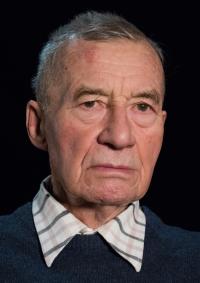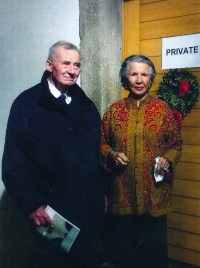I was a scout leader, then they made me pay for it in prison in Ruzyně

Stáhnout obrázek
Vladimír Jirout was born on 10 July 1932 in Prague to Alois and Ludmila Jirout, a couple of art bookbinders. He spent the war in Prague; just after liberation when he was thirteen years old, he cooperated with the International Red Cross, he took care of repatriates and people who returned from concentration camps. That experience strongly influenced him and he continued leading the unit in a scout way after the violent integration of the scout unit Šipka with Union for Cooperation with the Army (Svazarm). This action was classified as sedition and in 1958 Vladimír was sentenced to serve 3 years for it. Even though he finished studying Architecture at Czech Technical University in 1958 he was not allowed to defend his diploma thesis for political reason. He worked as a project architect after he had been released from prison and he started to study Architecture at Academy of Fine Arts with Jaroslav Fragner. During his studies at Academy of Fine Arts he did an external examination against planned and starting construction of pretram which was not only ineffective concerning traffic but would also cause massive demolition of old buildings in Prague. The works were stopped in 1967 thanks to his external examination and the construction of modern metro was started. He visited West Berlin in 1967 for the first time and he studied local metro there for three weeks, he went there for a long-time internship in 1968. He then stayed in Berlin and worked as a project architect of local metro. He married a German in 1970 and got an emigrant passport. He lived and worked in Berlin until 2000, then he returned to the Czech Republic. The Ministry of the Interior recorded him as a counter-intelligence agent since 1967.


